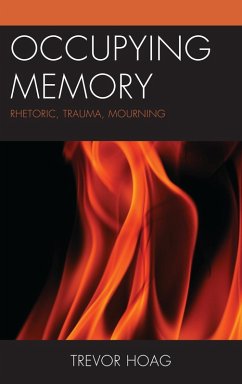Occupying Memory investigates the forces of trauma and mourning as deeply rhetorical in order to account for their capacity to seize one's life. Rather than viewing memory as granting direct access to the past and being readily accessible or pliant to human will, Trevor Hoag exposes how the past is a rhetorical production and that trauma and mourning shatter delusions of sovereignty. By granting memory the posthuman power to persuade without an accompanying rhetorician, and contending the past cannot become a reality without being written, this book highlights rhetoric's indispensability while transforming its relationship to memorialization, trauma, narrative, death, mourning, haunting, and survival. Analyzing and deploying the rhetorical trope of occupatio, Occupying Memory inhabits the conceptual place of memory by reinscribing it in ways that challenge hegemonic power while holding open that same space to keep memory "in question" and receptive to alternative futures to come. Hoag likewise demonstrates how one might occupy memory through insights gleaned from analyzing artifacts, media, events, and tropes from the Occupy Movement, a contemporary national and international movement for socioeconomic justice.
Bitte wählen Sie Ihr Anliegen aus.
Rechnungen
Retourenschein anfordern
Bestellstatus
Storno









